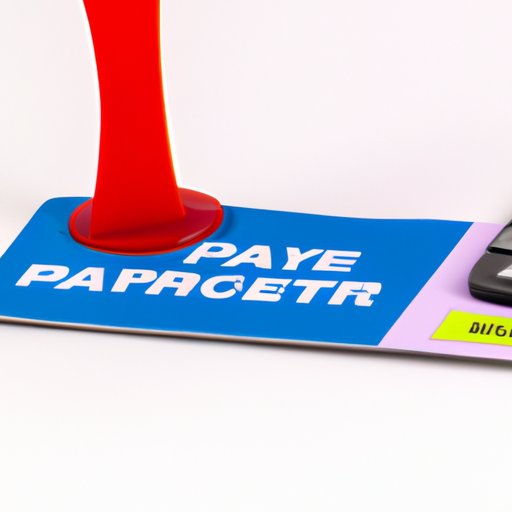
Introduction
As credit cards continue to be a popular method of payment, many people wonder whether they can pay their car payment with a credit card. After all, it seems like an easy way to earn rewards points or to manage your finances. But is it worth it? Let’s explore the pros and cons of paying your car payment with a credit card.
The Pros and Cons of Paying Your Car Payment with a Credit Card: Is It Worth It?
As with any financial decision, it’s important to weigh the pros and cons of paying your car payment with a credit card. One of the main benefits of paying with a credit card is the opportunity to earn rewards points. Depending on your credit card, you may earn cash back, travel points, or other rewards for each payment you make. Additionally, paying with a credit card can make it easier to manage your finances by consolidating payments and providing a record of your transactions.
However, paying your car payment with a credit card also comes with some drawbacks. First and foremost, many auto lenders charge convenience fees for credit card payments, which can add up over time. Additionally, using a credit card to pay off a large balance can lead to credit card debt if not managed carefully. Before deciding whether to pay your car payment with a credit card, consider the benefits and drawbacks to determine if it’s worth it for you.
Can You Earn Rewards by Paying Your Car Payment with a Credit Card? Let’s Find Out.
For many people, the main reason to pay their car payment with a credit card is the opportunity to earn rewards points. But how exactly do rewards programs work, and what types of rewards can be earned? When you make a purchase with a rewards credit card, you earn points or cash back based on the amount you spend. These rewards can then be redeemed for travel, merchandise, gift cards, or even statement credits.
When it comes to paying your car payment with a credit card, rewards programs can vary widely. Some credit cards offer bonus points or cash back for auto loan payments, while others don’t offer any rewards at all. If you’re interested in earning rewards for your car payment, it’s important to do your research and find a credit card that offers good rewards for this type of payment. Options might include cards with rewards programs aimed at automobile-related spending, like gas or repairs.
Breaking Down the Process of Paying Your Car Payment with a Credit Card: A Step-by-Step Guide
Setting up credit card payments with your auto lender may sound complicated, but it doesn’t have to be. In fact, most auto lenders offer online payment options that allow you to set up automatic payments or make one-time payments using your credit card. Here’s a step-by-step guide to paying your car payment with a credit card:
- Log in to your auto lender’s website or app.
- Select the option to make a payment.
- Choose the credit card payment option and enter your credit card information.
- Review and submit your payment.
What Auto Lenders Accept Credit Card Payments? And Should You Use Them?
Not all auto lenders accept credit card payments, so it’s important to check with your lender before attempting to set up payments with your card. Some lenders that do accept credit card payments may charge convenience fees that offset the rewards you earn for using your card. It’s up to you to decide whether the rewards are worth the additional expenses.
That said, there are some advantages to using an auto lender that accepts credit card payments, such as the ability to manage your finances more easily and to earn rewards points. If you’re interested in using your credit card for car payments, research auto lenders that accept credit card payments and weigh the pros and cons carefully to determine if it’s the right decision for you.
Avoiding Fees and Managing Your Finances: What You Need to Know Before Putting Your Car Payment on Your Credit Card
Before putting your car payment on your credit card, it’s important to be aware of any fees that may be associated with this type of payment. Most auto lenders charge a convenience fee for credit card payments, which can range from a flat fee to a percentage of the total payment amount. To avoid these fees, consider setting up automatic payments from your bank account or paying your balance in full every month. This can also help you manage your finances more easily and avoid falling into credit card debt.
Regardless of whether you choose to pay your car payment with a credit card, it’s always important to manage your finances responsibly. This means creating a budget, paying bills on time, and keeping your credit score in good shape. By being proactive about your finances, you can make the most of your credit card rewards and avoid any potential pitfalls.
Conclusion
While paying a car payment with a credit card has its benefits, it’s important to evaluate the pros and cons before making a decision. While some people prefer to earn rewards points, others may find it more beneficial to avoid fees and potential debt. Ultimately, it’s up to you to decide whether paying your car payment with a credit card is the right choice for you. By being aware of the benefits and drawbacks, you can make an informed decision that helps you manage your finances more easily and earn rewards in the process.





